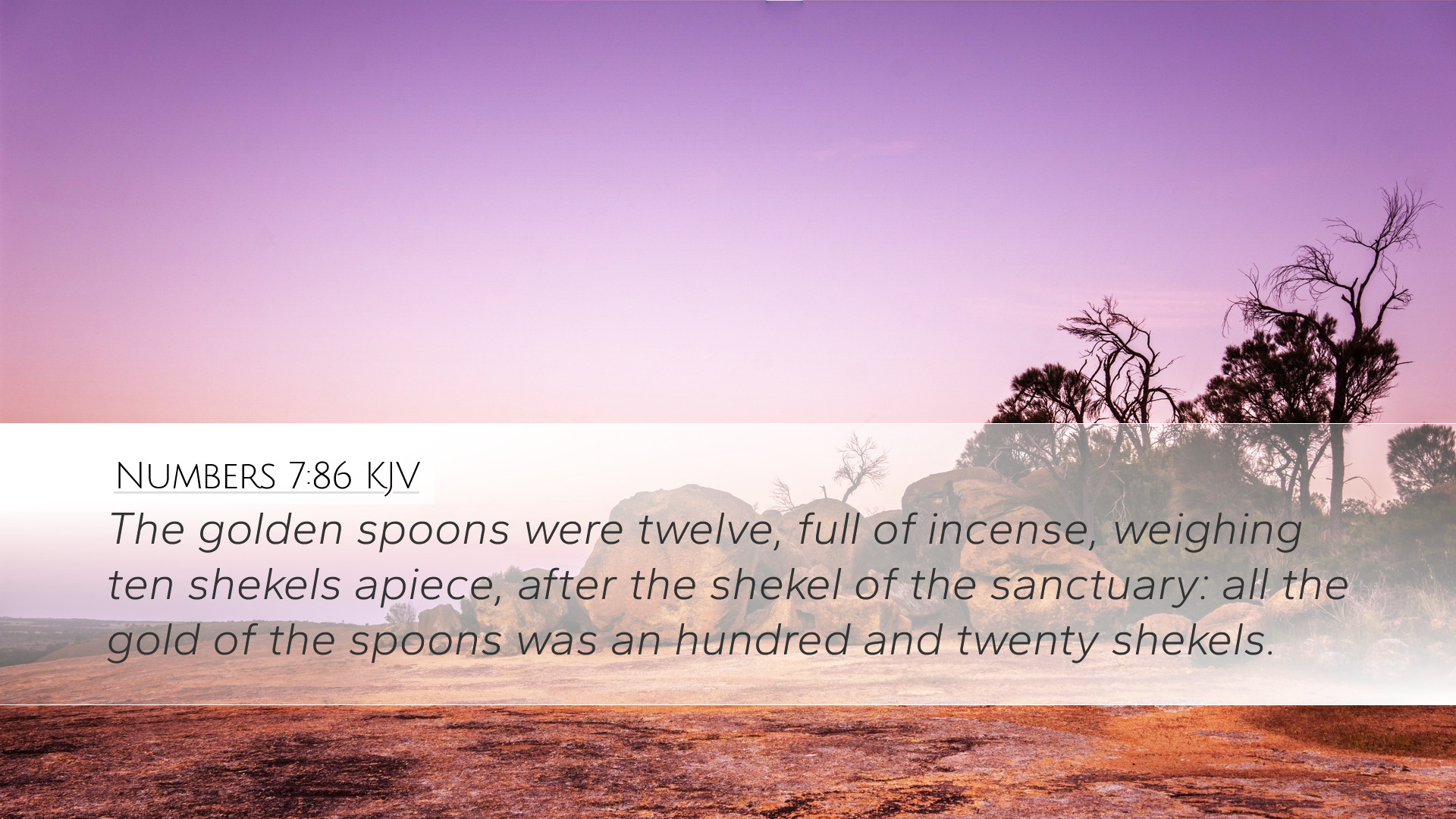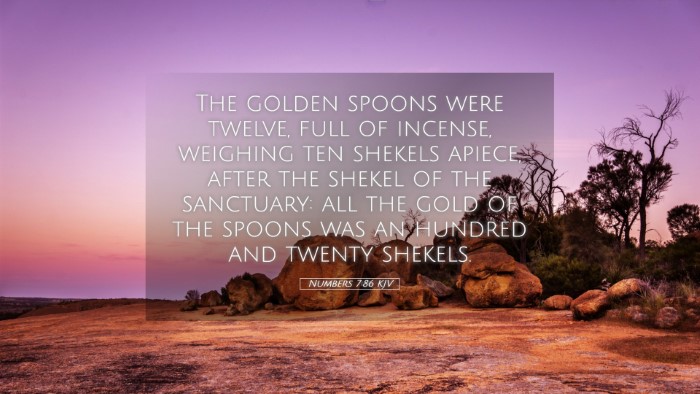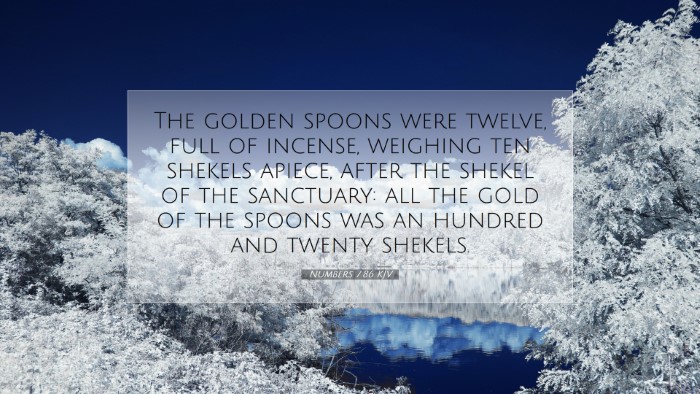Commentary on Numbers 7:86
Numbers 7:86 states: “The in all the offerings of the congregation, which they offered to the Lord, were in total: twelve silver bowls, twelve silver basins, and twelve gold spoons.” This verse concludes the detailed account of the offerings made by the leaders of Israel at the dedication of the altar.
Overview
This chapter details the offerings made by the leaders of Israel, highlighting the collective participation of the twelve tribes in the sacred rituals. The significance of the numbers and types of offerings reflects the unity and devotion of the Israelites towards the Lord, as they establish their relationship with Him.
Insights from Public Domain Commentaries
Matthew Henry's Commentary
Henry emphasizes the importance of Israel's offerings being willingly given. He notes that the offerings were made ceremonially and contributed to the glory of God and the beauty of worship in the tabernacle. Each leader presented their offering in accordance with their tribe, symbolizing their unique contribution to the nation and serving as a unified front in service to God.
Furthermore, Henry remarks on the silver bowls and basins, which were symbols of purification, and the gold spoons suggesting that worship must be conducted in a worthy manner. The deliberate choice of materials illustrates the necessity for reverence in service to the Divine.
Albert Barnes' Notes on the Bible
Barnes elaborates on the significance of the silver and golden utensils used for offerings. He asserts that the materials used in worship are a reflection of the value placed on God's service. The twelve representatives from the tribes offered their gifts, showcasing their commitment to the covenant relationship established between God and Israel.
Moreover, Barnes highlights the communal nature of these offerings. The fact that they were made collectively emphasizes the shared responsibility of worship among the Israelites, reinforcing the notion that each tribe has a vital role in the congregation’s relationship with God.
Adam Clarke's Commentary
Clarke provides a detailed analysis of the weights and values associated with the offerings, further enhancing the understanding of their significance. He notes the contributions in terms of weight and purity of the metals, insisting that these elements were not mere formalities but had deep spiritual meanings tied to dedication and sanctification before God.
Clarke also points out the historical context of these offerings, connecting them to the greater narrative of Israel's journey and devotion to God. He indicates that such records serve to remind future generations of the sacrifices made by their ancestors in establishing a firm foundation of faith.
Theological Implications
The offerings in Numbers 7:86 can be understood as a profound demonstration of stewardship and worship. Each item represents a sacrificial gift to God, reflecting the understanding that all blessings ultimately come from Him. This theological perspective invites pastors, students, and theologians to contemplate our own offerings in worship today, supposing the significance of worshiping with a collective and generous spirit.
- Collective Worship: The idea that worship is a community act, reflective of Israel’s covenant identity.
- Holiness of Offerings: The need for purity and value in the offerings we present to God today.
- Legacy of Faith: Remembering the sacrifices of past generations encourages present faithfulness in our worship practices.
Application for Today
As we study Numbers 7:86, the meticulous details of offerings and their significance serve as a reminder to contemporary believers about the importance of devotion and dedication in worship. This passage implores us to consider how we present our lives and resources to God:
- What does it mean to offer our time, talents, and treasures in a way that honors God today?
- How can we as a church operate in unity, each contributing to the larger mission God has called us to?
- In what ways can we remind ourselves and others of our heritage of faith and the sacrifices made by those who have come before us?
Conclusion
Numbers 7:86 encapsulates a moment of deep significance in the life of Israel, highlighting the themes of unity, commitment, and reverence in worship. The contributions of the tribal leaders serve as an enduring reminder of the heart of worship—honoring God through our offerings and lives. Through the reflections of scholars such as Henry, Barnes, and Clarke, we can draw rich insights that encourage our faith and practice today.


